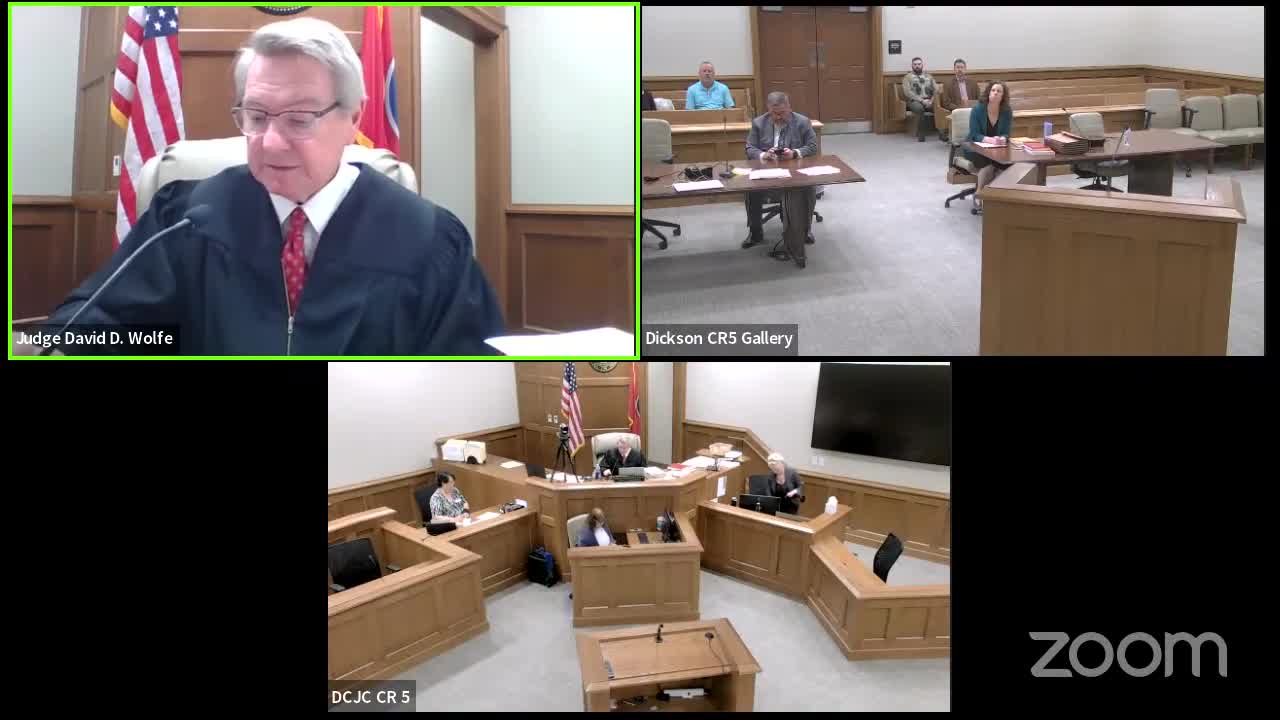Judge takes amended new-trial motion under advisement, denies YouTube claim in State v. Lane
Get AI-powered insights, summaries, and transcripts
Subscribe
Summary
A Tennessee judge on Sept. 29 took under advisement an amended motion for a new trial in State of Tennessee v. Steven P. Lane and denied the narrow request to limit public access to a trial video.
A Tennessee judge on Sept. 29 took under advisement an amended motion for a new trial in State of Tennessee v. Steven P. Lane and denied the narrow request to limit public access to a trial video. Judge David D. Wolfe said he would review the transcript and rule on the remaining claims later.
The defense told the court that Lane had been tried on alleged contractor fraud and theft charges and was acquitted of the home-improvement fraud counts but convicted of theft. Defense counsel argued the case mirrored Court of Criminal Appeals authority (citing State v. Ammons and State v. White) and said the conduct amounted to a civil breach of contract rather than the sort of deception that negates consent under Tennessee theft law. "It was bad business. It's a violation of contract. It's a breach of contract, but it's not a crime," the defense argued in court.
The prosecutor disputed that characterization and urged the court that the jury—s verdict was supported by the evidence. The state noted the jury deliberated over multiple days, heard testimony and exhibits, and reached a guilty verdict on theft but not on home-improvement fraud. The prosecutor also told the court that jury instructions and other evidence had been admitted that addressed consent and deception.
A separate defense request asking the court to remove or restrict a publicly posted trial video was denied. Judge Wolfe said jurors were instructed not to research the case, were polled the morning after deliberations and stated they had not viewed outside material, and that merely allowing the public to view a livestream or recording does not by itself prove juror misconduct. The judge denied that portion of the motion on the record and said the rest of the amended motion would be taken under advisement; he asked counsel to allow the court time to reread the three-volume transcript before issuing a written ruling.
The defense recorded in filings that an amended motion for a new trial had been filed Sept. 29, 2025 (the motion originally filed Dec. 5, 2022). The judge asked the parties to accept that the court would issue a decision in due course and warned that delay in appellate-era motions had added frustration, but did not rule on the other grounds at the hearing.
